Taking Action
Supply chain

We have a series of responsible sourcing policies, covering commodities widely used in Action products. We expect our suppliers to comply with these policies alongside our overall Ethical Sourcing Policy. Action policies already cover cotton, timber, cocoa, plastics, palm oil and chemicals. In 2024, we plan to add further policies, prioritising commodities that may cause deforestation.


Responsible sourcing
We buy from suppliers where human and labour rights are respected.
We are working towards full supply chain transparency for all private and white label products – by the end of 2025.
*Forest Stewardship Council (FSC) and Programme for the Endorsement of Forest Certification (PEFC)
This policy sets out minimum standards for suppliers in areas like forced labour, health and safety, pay and working hours. In 2023, we introduced a new Human Rights and Environmental Due Diligence framework, and brought in a Child Labour policy as part of efforts to eliminate risk of child labour in our supply chain. We also have responsible sourcing and certification programmes, so our customers can be confident our products meet minimum sustainability standards. All our Action-branded and white label cotton products are now sustainably sourced – 99% under the Better Cotton programme with the remaining 1% sourced as organic cotton. In 2023, 94% of timber used in our products came from sustainably managed forests, either under the FSC® or PEFC.* We aim to increase this to 100% in 2024. All cocoa used in Action-brand products has been Fairtrade since 2022.
We require suppliers to sign up to our Ethical Sourcing Policy
2023
100%
100% goal by
Progress to end-2023
(Better Cotton, organic or recycled)
Cotton
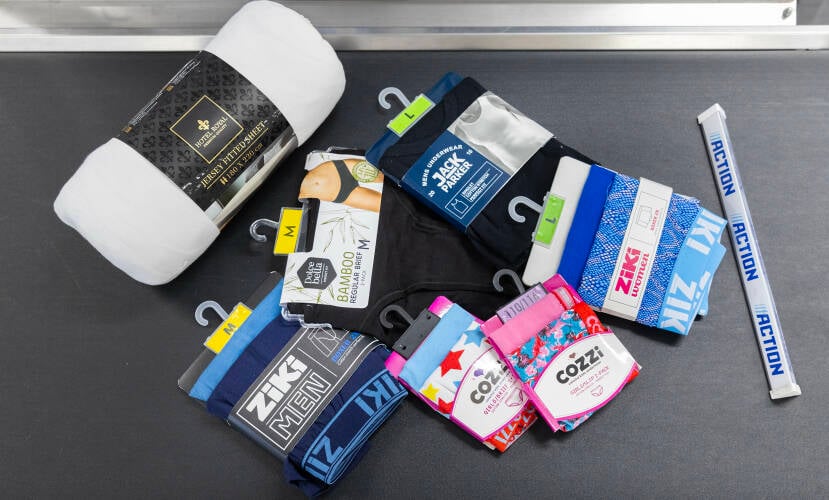
2024
100%
100% goal by
Progress
to end-2023
(for both private and white labels)
(private label)
(Fairtrade or other recognised standards)
Cocoa
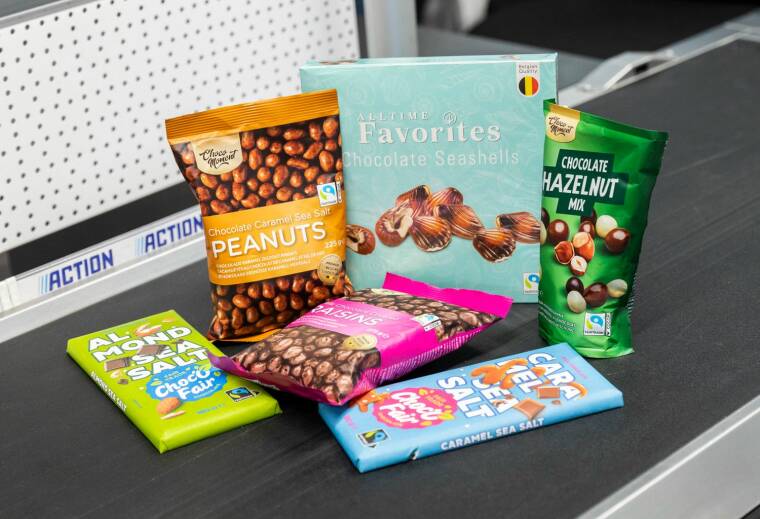
2024
94%
100% goal by
Progress
to end-2023
(FSC ®/PEFC)
Timber
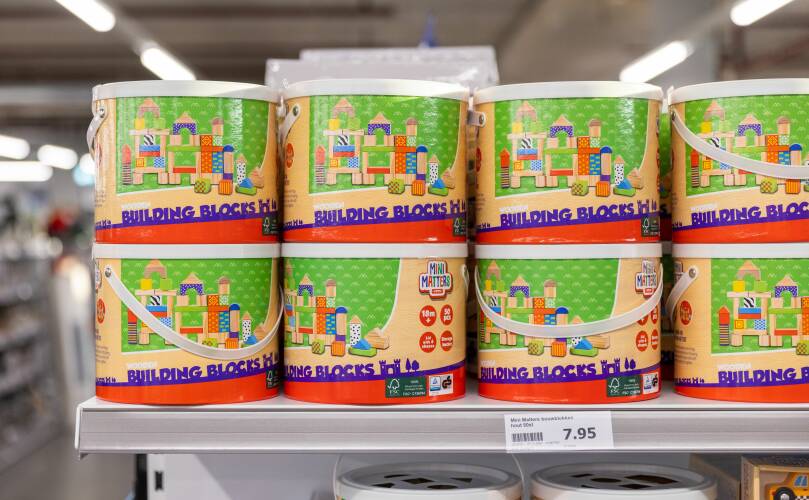
*Introduced in 2023, Germany’s Supply Chain Due Diligence Act requires companies to manage human rights risks throughout their supply chains and business operations.
Our Ethical Sourcing Policy is part of Action’s overall Human Rights and Environmental Due Diligence (HREDD) framework. As well as our Ethical Sourcing Policy, the framework also includes our policies on Anti-Bribery and Corruption, Health and Safety, Privacy and our Code of Conduct. The HREDD helps ensure we comply with Germany’s recent law on supply chain due diligence* and will prepare Action for the EU’s new Corporate Sustainability Due Diligence Directive, expected to come into effect in the coming years.
These include the core conventions of the International Labour Organisation (ILO), the UN Guiding Principles on Business & Human Rights and the OECD Guidelines for Multinational Enterprises. We also work closely with external partners to ensure these standards are upheld, including amfori and supply chain expert ImpactBuying, which helps monitor compliance with our policies. In 2023, Action also began to work with the Centre for Child Rights & Business to support our efforts to reduce corresponding risks in our supply chain.
Our standards for suppliers are based on international norms
Total number of risk assessments carried out
Number of suppliers screened (direct import suppliers and domestic sourcing)
Number of factories screened
Fifteen percent of our direct-import factories receive spot checks – an approach we are now extending to wholesalers. In addition, social audits are required for all producers and sub-contractors in high-risk countries. In 2023, 2,104 assessments were carried out at Action suppliers and factories. To support our efforts in this area, we also offer human rights training to employees working for our suppliers and business partners. Most of our audits are carried out in line with amfori standards, widely recognised standards within the industry. During 2023, we conducted a total of 88 spot checks at factories in Asia.
We carry out regular risk assessments, social audits and spot checks
*Covering suppliers in China, Vietnam and India
To do this, we work with our suppliers: directly or through Li & Fung, our partners in Hong Kong.* Ultimately, we may exclude suppliers if there are specific risks or requirements to do so. We don’t accept products prohibited under international sanctions, for example. To address urgent issues, we also have a Critical Escalation Policy.
non-compliance issues
It is important that we know exactly who our suppliers are, as well as where and how our products are manufactured. From 2022, we already had 100% transparency for all private label products, as well as all direct imports. We’re working towards full transparency for private and white label suppliers by the end of 2025.
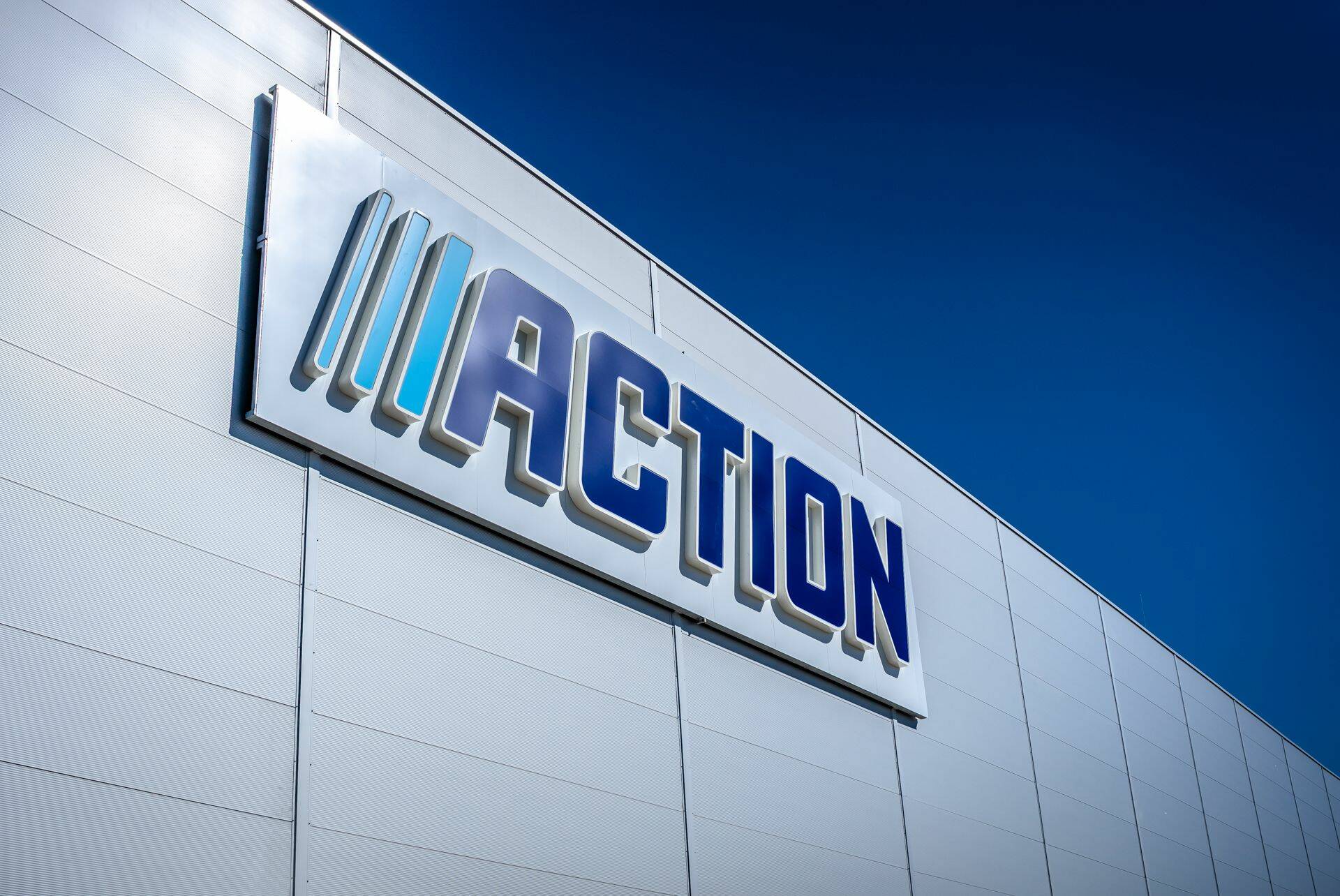



We are working towards full supply chain transparency for all private and white label products – by the end of 2025.
Responsible sourcing
We buy from suppliers where human and labour rights are respected.
*Forest Stewardship Council (FSC) and Programme for the Endorsement of Forest Certification (PEFC)
We have a series of responsible sourcing policies, covering commodities widely used in Action products. We expect our suppliers to comply with these policies alongside our overall Ethical Sourcing Policy. Action policies already cover cotton, timber, cocoa, plastics, palm oil and chemicals. In 2024, we plan to add further policies, prioritising commodities that may cause deforestation.
This policy sets out minimum standards for suppliers in areas like forced labour, health and safety, pay and working hours. In 2023, we introduced a new Human Rights and Environmental Due Diligence framework, and brought in a Child Labour policy as part of efforts to eliminate risk of child labour in our supply chain. We also have responsible sourcing and certification programmes, so our customers can be confident our products meet minimum sustainability standards. All our Action-branded and white label cotton products are now sustainably sourced – 99% under the Better Cotton programme with the remaining 1% sourced as organic cotton. In 2023, 94% of timber used in our products came from sustainably managed forests, either under the FSC® or PEFC.* We aim to increase this to 100% in 2024. All cocoa used in Action-brand products has been Fairtrade since 2022.
We require suppliers to sign up to our Ethical Sourcing Policy
2024
94%
100% goal by
Progress
to end-2023
(FSC ®/PEFC)
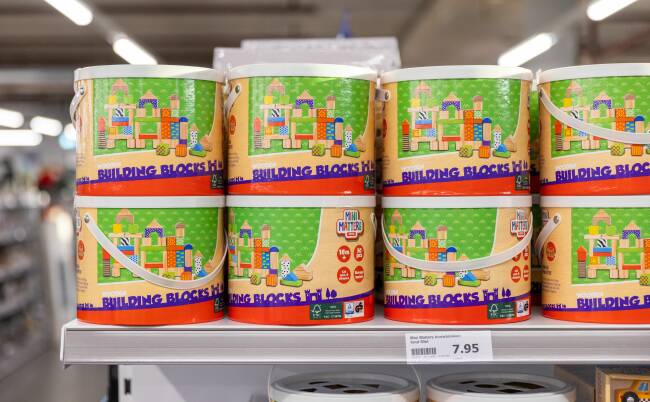
Timber
2023
100%
100% goal by
Progress to end-2023
(Better Cotton, organic or recycled)
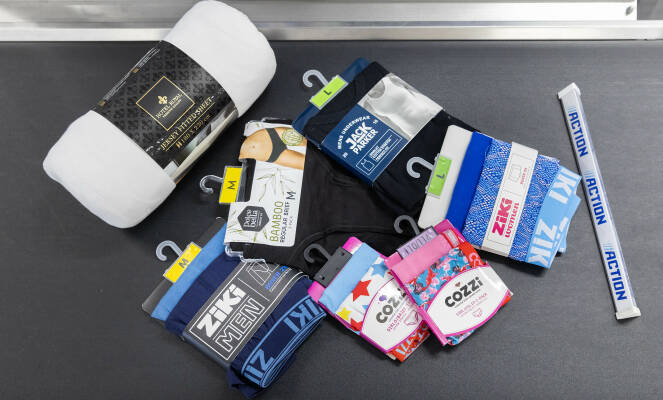
Cotton
2024
100%
100% goal by
Progress
to end-2023
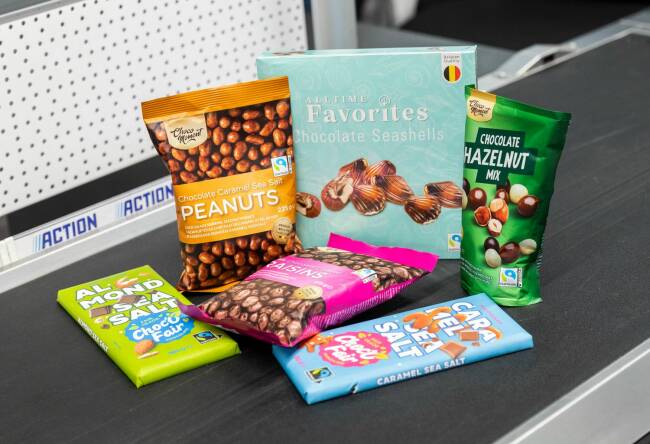
(for both private and white labels)
(private label)
Cocoa
(Fairtrade or other recognised standards)
*Introduced in 2023, Germany’s Supply Chain Due Diligence Act requires companies to manage human rights risks throughout their supply chains and business operations.
These include the core conventions of the International Labour Organisation (ILO), the UN Guiding Principles on Business & Human Rights and the OECD Guidelines for Multinational Enterprises. We also work closely with external partners to ensure these standards are upheld, including amfori and supply chain expert ImpactBuying, which helps monitor compliance with our policies. In 2023, Action also began to work with the Centre for Child Rights & Business to support our efforts to reduce corresponding risks in our supply chain.
Our standards for suppliers are based on international norms
Our Ethical Sourcing Policy is part of Action’s overall Human Rights and Environmental Due Diligence (HREDD) framework. As well as our Ethical Sourcing Policy, the framework also includes our policies on Anti-Bribery and Corruption, Health and Safety, Privacy and our Code of Conduct. The HREDD helps ensure we comply with Germany’s recent law on supply chain due diligence* and will prepare Action for the EU’s new Corporate Sustainability Due Diligence Directive, expected to come into effect in the coming years.
Total number of risk assessments carried out
Number of suppliers screened (direct import suppliers and domestic sourcing)
Number of factories screened
Fifteen percent of our direct-import factories receive spot checks – an approach we are now extending to wholesalers. In addition, social audits are required for all producers and sub-contractors in high-risk countries. In 2023, 2,104 assessments were carried out at Action suppliers and factories. To support our efforts in this area, we also offer human rights training to employees working for our suppliers and business partners. Most of our audits are carried out in line with amfori standards, widely recognised standards within the industry. During 2023, we conducted a total of 88 spot checks at factories in Asia.
We carry out regular risk assessments, social audits and spot checks
It is important that we know exactly who our suppliers are, as well as where and how our products are manufactured. From 2022, we already had 100% transparency for all private label products, as well as all direct imports. We’re working towards full transparency for private and white label suppliers by the end of 2025.
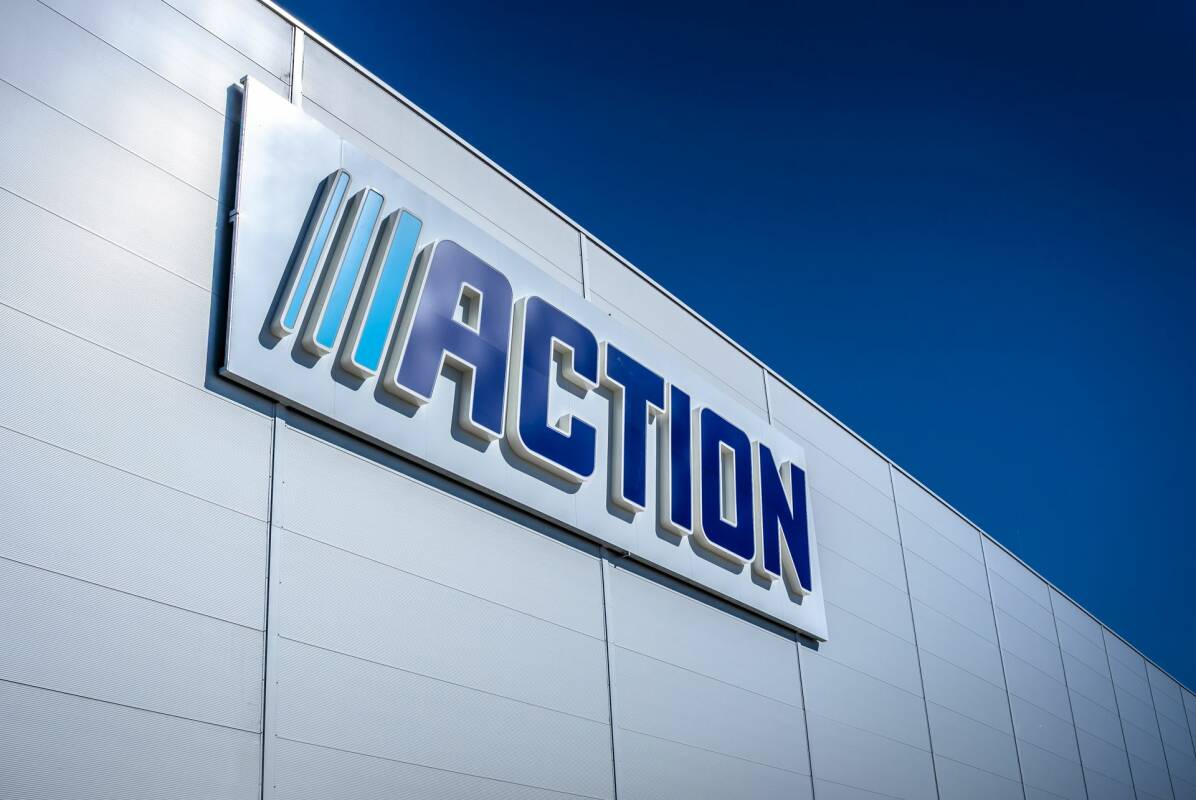
*Covering suppliers in China, Vietnam and India
To do this, we work with our suppliers: directly or through Li & Fung, our partners in Hong Kong.* Ultimately, we may exclude suppliers if there are specific risks or requirements to do so. We don’t accept products prohibited under international sanctions, for example. To address urgent issues, we also have a Critical Escalation Policy.
non-compliance issues